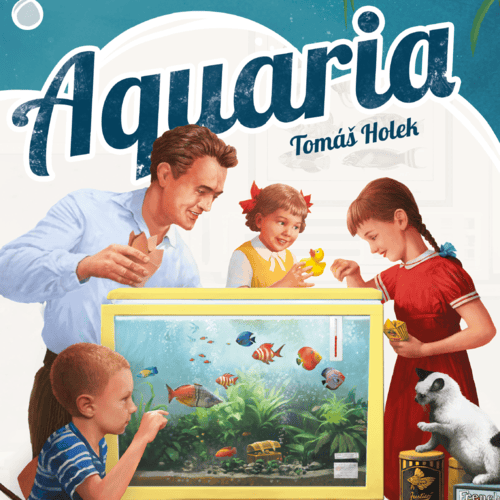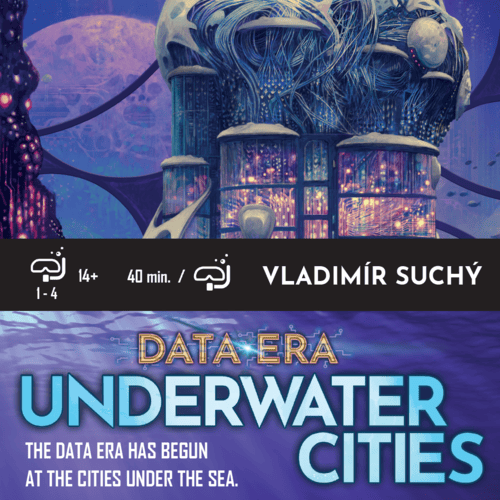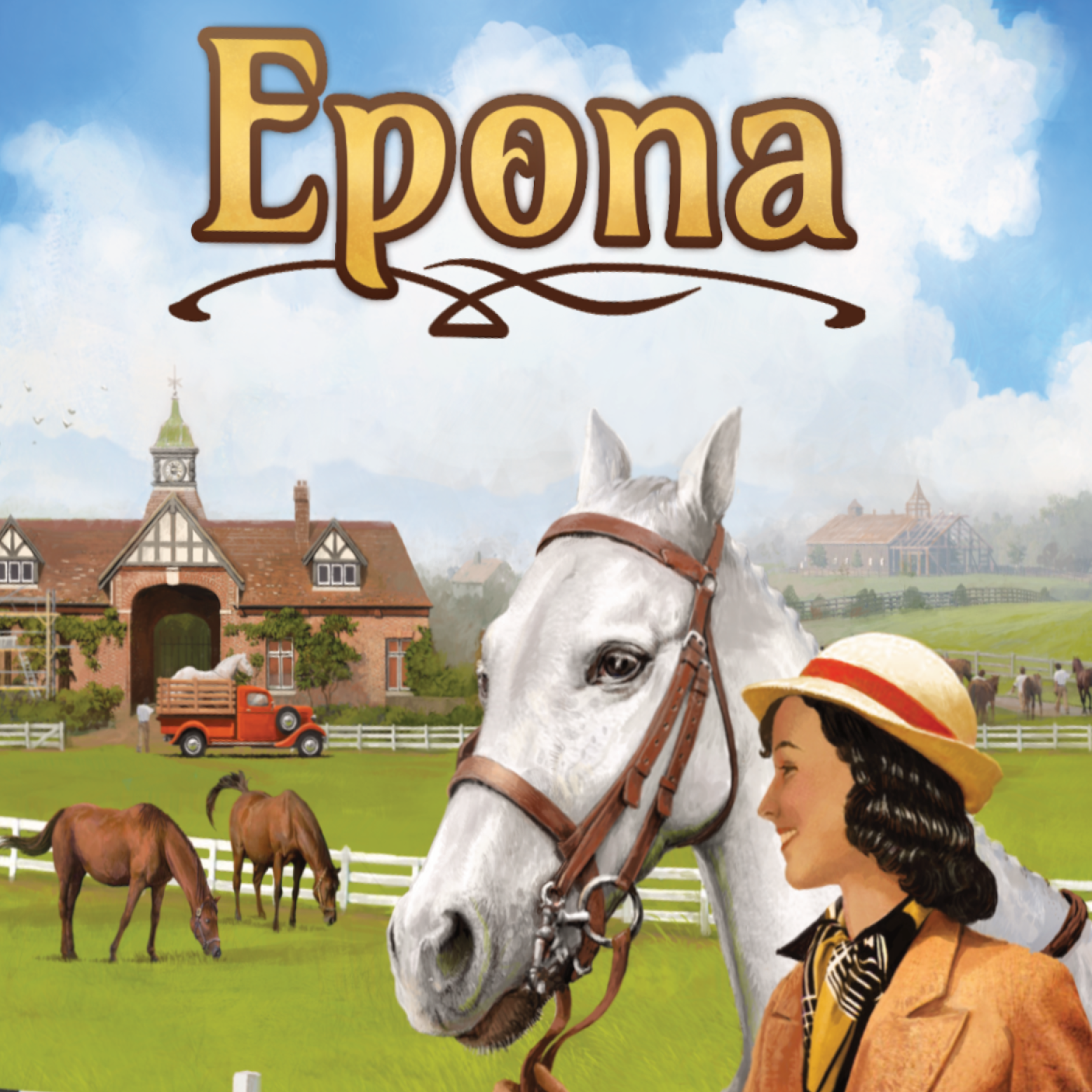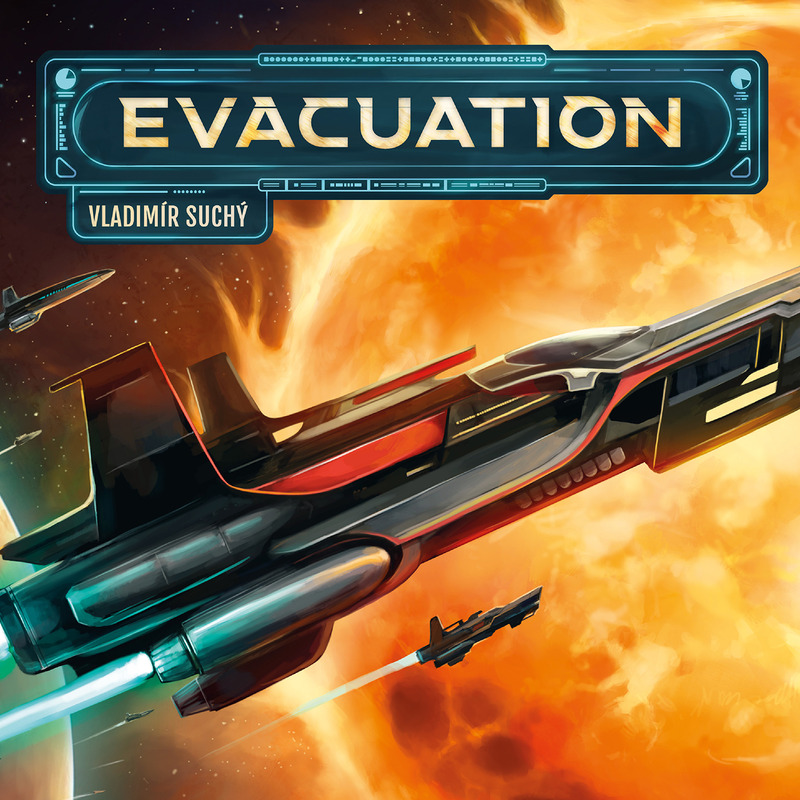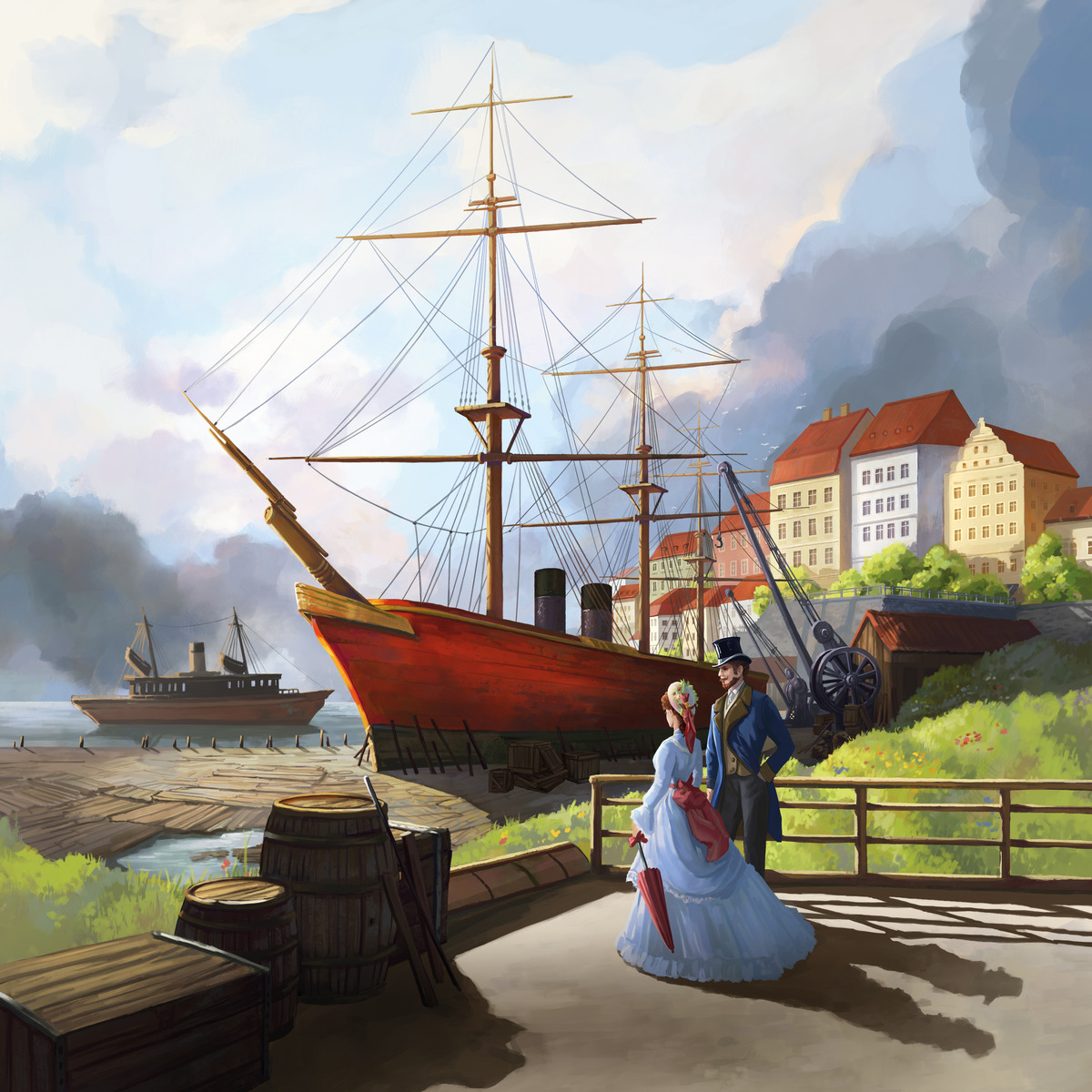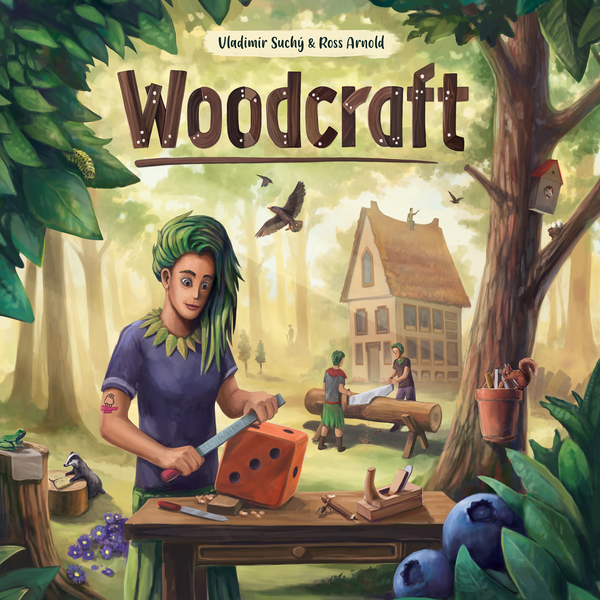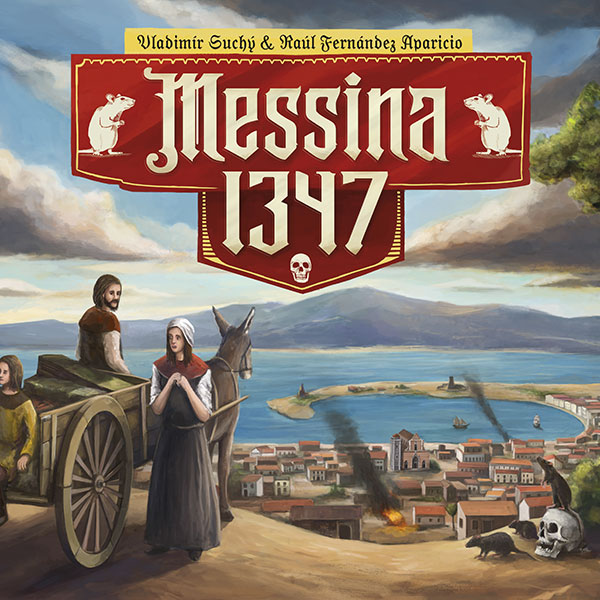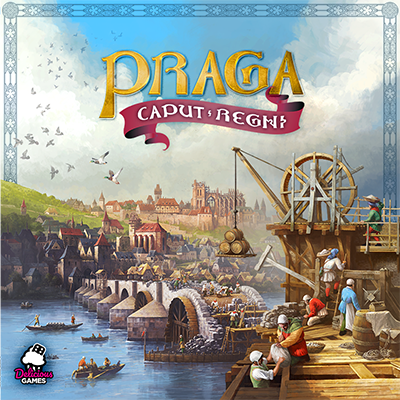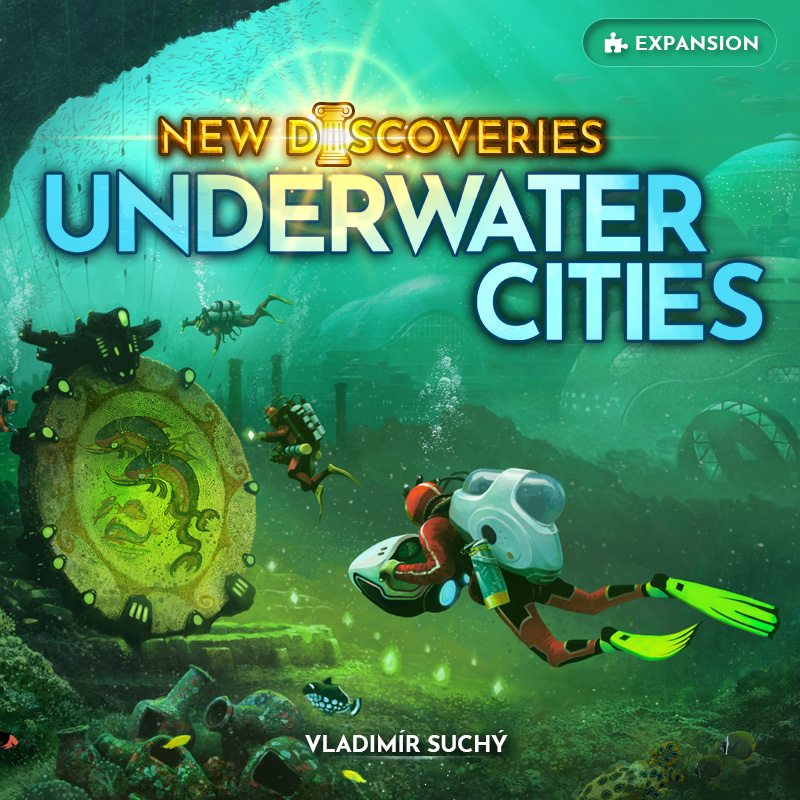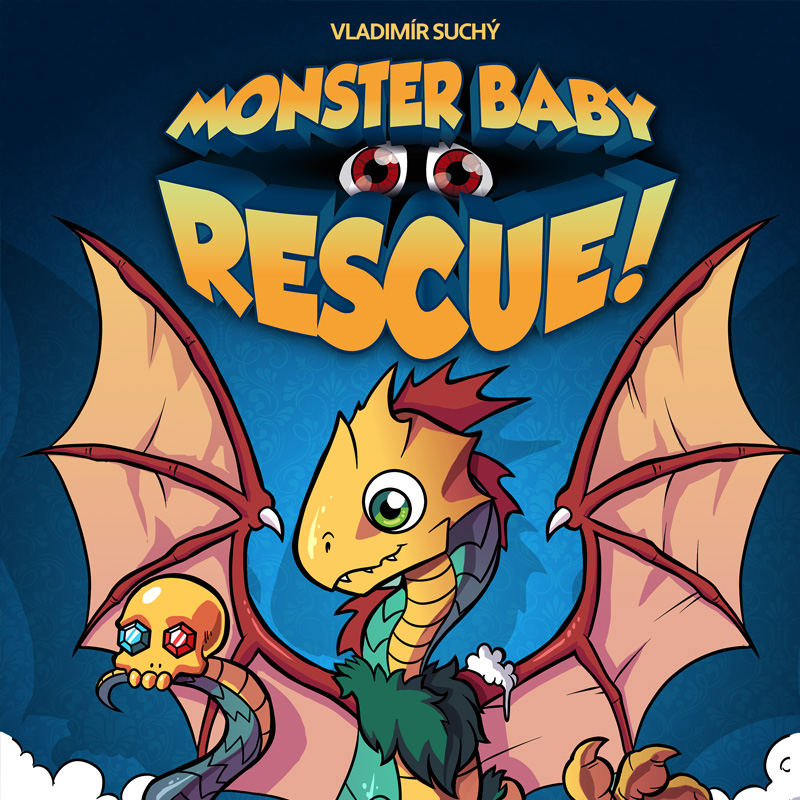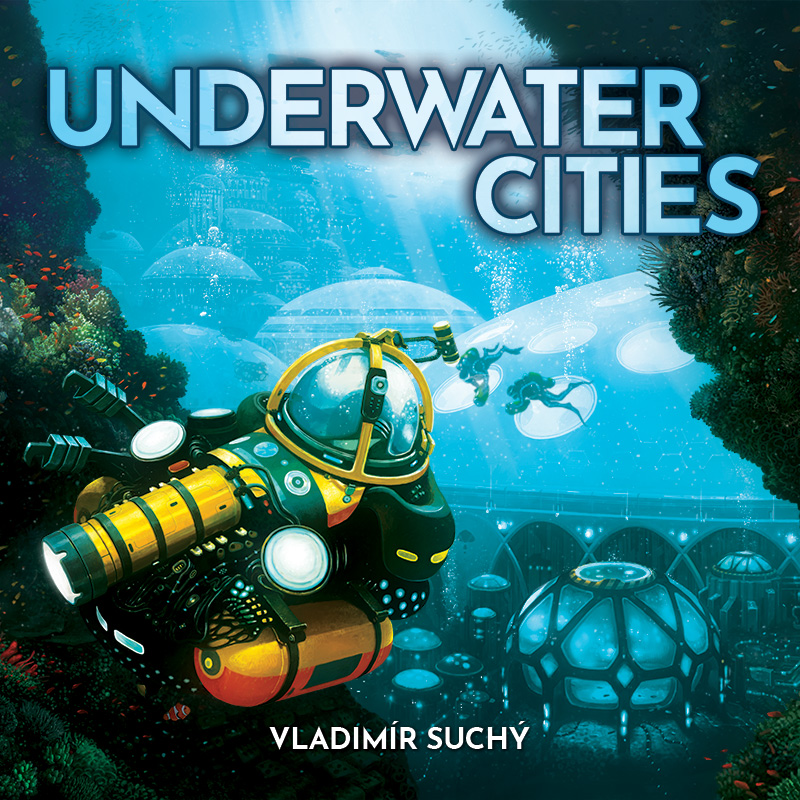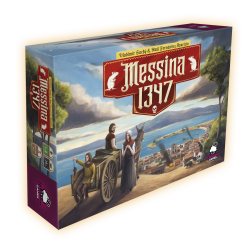Messina 1347 - deník autora - Vladimír

At the end of 2019 my wife and I were invited to attend the Málaga Board Games Convention (BGC). The organizers were so kind to us, and the place itself was wonderful, and in addition they asked whether I would be a member of the committee judging a prototype competition they were running. I was honored to accept.
Because I am primarily a player of Eurogames and am also someone who is interested in games that have a historical angle, I was especially interested in a competition entry called Messina 1347 — a game about the arrival and spread of the Black Plague to Europe via Messina in Sicily in 1347. This prototype included some interesting ideas that I'd not often seen in games before. It was, at its heart, a worker-driven game, but it also had a mechanism for spreading infection throughout the city. I also found it interesting how the board state within the game evolved; it simultaneously functioned as the place for the workers to take their actions, but was also where the plague spread, which in turn affected where you might send your workers. I also found the player boards interesting as they used the three different types of citizens in the game on different tracks.
The game at that time — as with any other prototype (mine included!) — wasn't so well balanced in my opinion. I held some discussions with the designer, Raúl Fernández Aparicio, and I told him some of my ideas based on that prototype and suggested how the game could perhaps become better balanced.
After those discussions, Raúl agreed to make some adjustments to the prototype, incorporating some of my suggestions, and then to send it to on us at Delicious Games, our company, to be further tested. In the spring of 2020, just as life was beginning to imitate art and a real world pandemic was kicking in with Covid-19, Raúl sent us his updated Messina prototype.
The game had been updated with some of my suggestions but it still had some balance issues. At this stage, we thought hard about what we should do next. The prototype definitely contained good ideas, and we believed they could be the basis for an interesting Eurogame. However, at the same time, we were of the opinion that the prototype was not in a state where it could be tested fully or was close to publication. The game, as it existed then, also had a lower complexity weight than other games published by us here at Delicious Games.
From a personal point of view, I was interested in collaborating with another designer to design a game. I have worked on more than ten published designs with myself as the designer, but I had never worked with another designer on a game, and it was something I knew I wanted to try at some point in my design career. I suggested this to Raúl and said that if he agreed, I would try to redesign the prototype and that we would become co-designers on the project. Raúl agreed to proceed on that basis, which was great news.
At that time, we, as Delicious Games, did not make an offer to publish the game because we didn't yet know how the game would go down with playtesters after its redesign. Testing with experienced players is a very important factor for us in determining whether we think a game we have as a prototype could eventually be published or not. We did, however, want to keep the theme of the game and most of the interesting mechanisms as we were sure they would provided the basis for a solid Eurogame.
During the next few months, while I was finishing my own design of Praga Caput Regni, I reworked the prototype for Messina, leaving in what I thought were the most interesting aspects of it.
First, I adjusted the theme of the game so that the gameplay had more of a thematic arc. At the beginning of the game the plague arrives in the city and starts to spread. After a while, it becomes rampant in the city, requiring the players to help fight the plague. After a while, though, it is controlled to a degree and starts to decline to the point where it is possible for citizens to return to the city. This arc, which I tried to replicate through the use of certain mechanisms within the game, hopefully adds layers to the theme of the game and echoes what happened in Messina at the time the game is set.
Originally the game had a board with hexes on it. I wanted to still use hexes, but decided to change the board so that they were individual hexes rather than being pre-printed on a board. This allowed for greater variability as well as the ability to adjust the size of the ‟city" to better match the number of players. Because I like variability in games a lot and consider it an important element of my designs, I added a mechanism in which citizen tokens were randomly placed in different locations each round. It is this aspect together with the variable introduction of plague cubes on those hexes that makes it, in my opinion, an interesting choice as to whether to use a hex for its action or not and also whether to help rescue a particular citizen or not.
Adding citizens to the main board, now divided into individual hexes, was also the basis for the next mechanism in the game. I expanded the idea of the player board into the shape of a country farmhouse where the citizens who had escaped the city could flee to.
These citizens could then take additional actions at the farmhouse, based on their type, which increased your incentive to take them in the first place. I tried to further enhance the integration of theme and mechanisms here by adding the need to quarantine those citizens who arrived at the farmhouse infected with the plague, which added complexity to the choices of which citizens to bring back to the players' farmhouses and when.
I also redesigned the three tracks on the player boards so that they were more integrated into the game.
Finally, I also introduced the idea of the ships coming into the city. Not only do they bring citizens and goods with them; they also bring the plague itself. This was another attempt to tie the theme of the game to the historical setting.
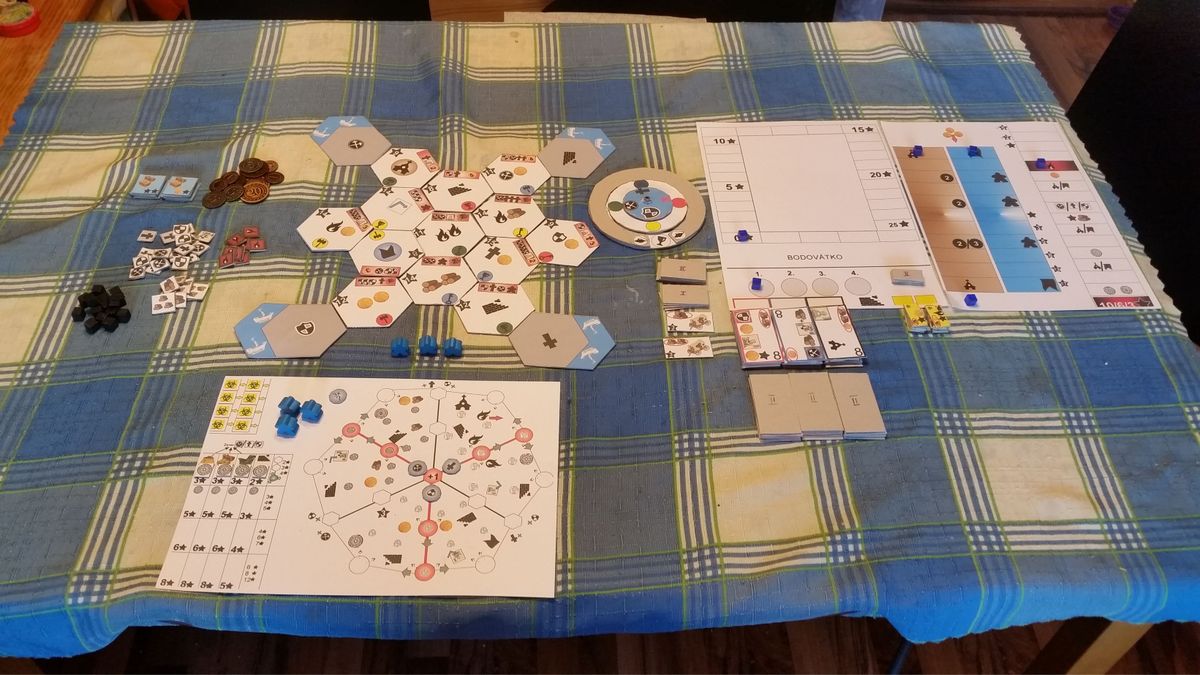
Prototype after this reworking
Through these changes, the game increased in complexity and formed the basis of the game that we decided to publish.
Even though the time of the Covid pandemic could be seen in a positive light for designers who had more time to spend on designing games by themselves in their homes, it was not a good thing for testing prototypes. In the autumn of 2020, we had to decide how we were going to playtest Messina, especially now that it had become a more complex prototype than what it started out as.
The decision on whether to take it further or not was strongly influenced by the overall situation with Covid. I did initial testing on the new prototype, and I got it to a point that I was happy with. However, there was still a lot of to do on Messina, and now we wanted to put the prototype in front of more groups of different players to find out whether we could publish as it was or whether we needed to redesign anything.
At this point, though, the Czech Republic was under a strict lockdown throughout the whole autumn, and it was very difficult to test this design with other players. We put together an electronic version of the game, but we increasingly found that online testing was not suitable for us to tell whether players liked it or not; when you play online, you can't always see the reaction of the players or tell how many issues are caused by the interface rather than the game itself.
Another problem we grappled with at this time was the theme of the game. In 2019, when we first discussed publishing the game, the idea of a worldwide pandemic was more like something from a science fiction story or something firmly from the annals of history. But now, we had to consider trying to publish a game about fighting an epidemic at the time the world was experiencing one for real.
The final decision about whether we should publish Messina was done after we carefully considered the reaction of playtesters to the theme. We asked people what they thought about the theme, and the answer was mostly the same — that they didn't mind the plague epidemic theme, but that some people may not like it as it may be "too close to home" for them. However, we never actually came across anyone who said that they didn't want to try the game because Covid was around and because of any modern parallels with the game.
In fact, our ultimate decision to publish Messina was our way of showing that while Covid had affected so many facets of our daily lives up that point that we wouldn't be limited or held back by it any more.
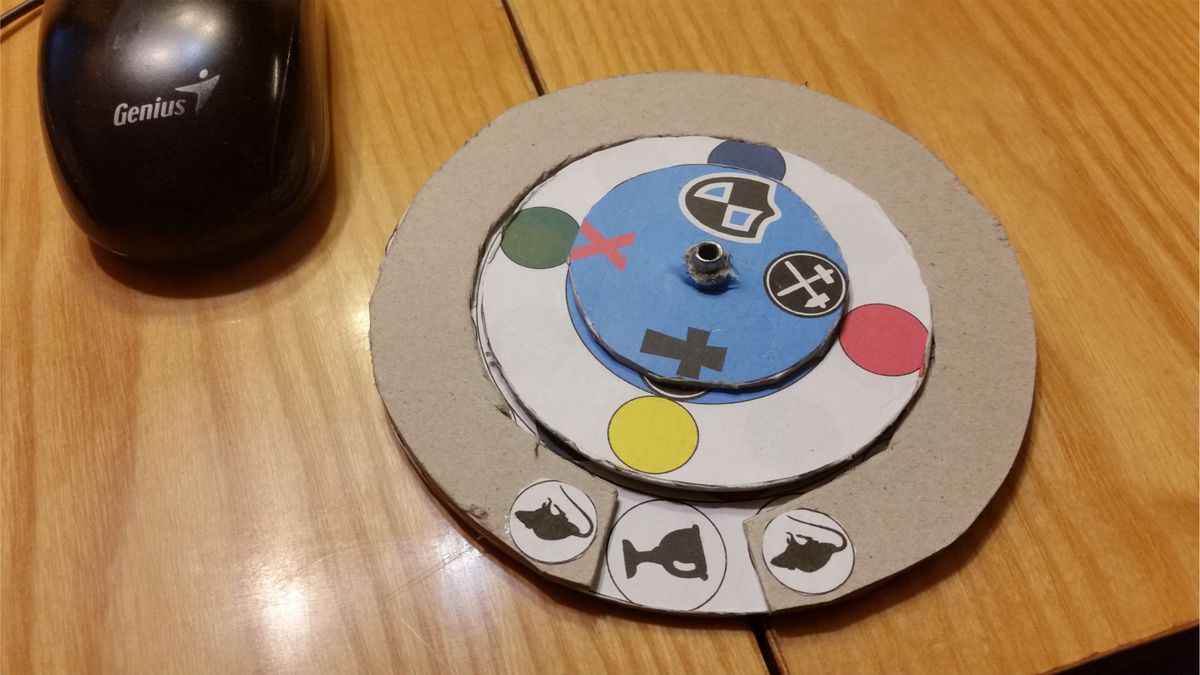
One of the first versions of the population wheel
So we decided to publish Messina for SPIEL '21. After that, we undertook extensive playtesting of the game, as did Raúl. We both had different groups of players who playtested the game a lot. We struggled through a lockdown at the beginning of this phase during which time we also tested the game as much as we could online and by playing the game solo. Thankfully, after a while, the situation with Covid improved and lockdown restrictions were not so limiting and finally we could meet players face-to-face to fully playtest the game.
The biggest challenge for us was to balance the game fully. In games of this type where you can gain more workers, it is important that it doesn't turn into a race to get the next worker as this can negatively impact on the possibility for players to try out other strategies. We wanted to ensure that we avoided this potentially dominant ‟snowball effect". After a number of adjustments, I think we managed to avoid this problem well, and I believe that Messina still has a lot of variability that gives players various viable strategies to explore and different ways to win.
To be even more variable, I also suggested that the player boards have double sides with asymmetric farms on the opposing sides and also that the scroll boards have alternate sides that provide different scoring opportunities, both of which provide an even more advanced challenge.
In the end, I think we here at Delicious Games, together with Raúl, have produced another fascinating Eurogame that has a complexity level similar to Underwater Cities or Praga Caput Regni and which combines engine-building mechanisms with wide variability and provides many different strategies to explore.
From a personal game designer point of view, I was able to experience co-designing a game for the first time by helping to further develop a pre-existing game made by someone else. The result is a design in which contributions from both designers were very important both at the start of design and also during its development and its finalization. Our two different approaches helped to create a new game, which is heavily influenced by both designers.
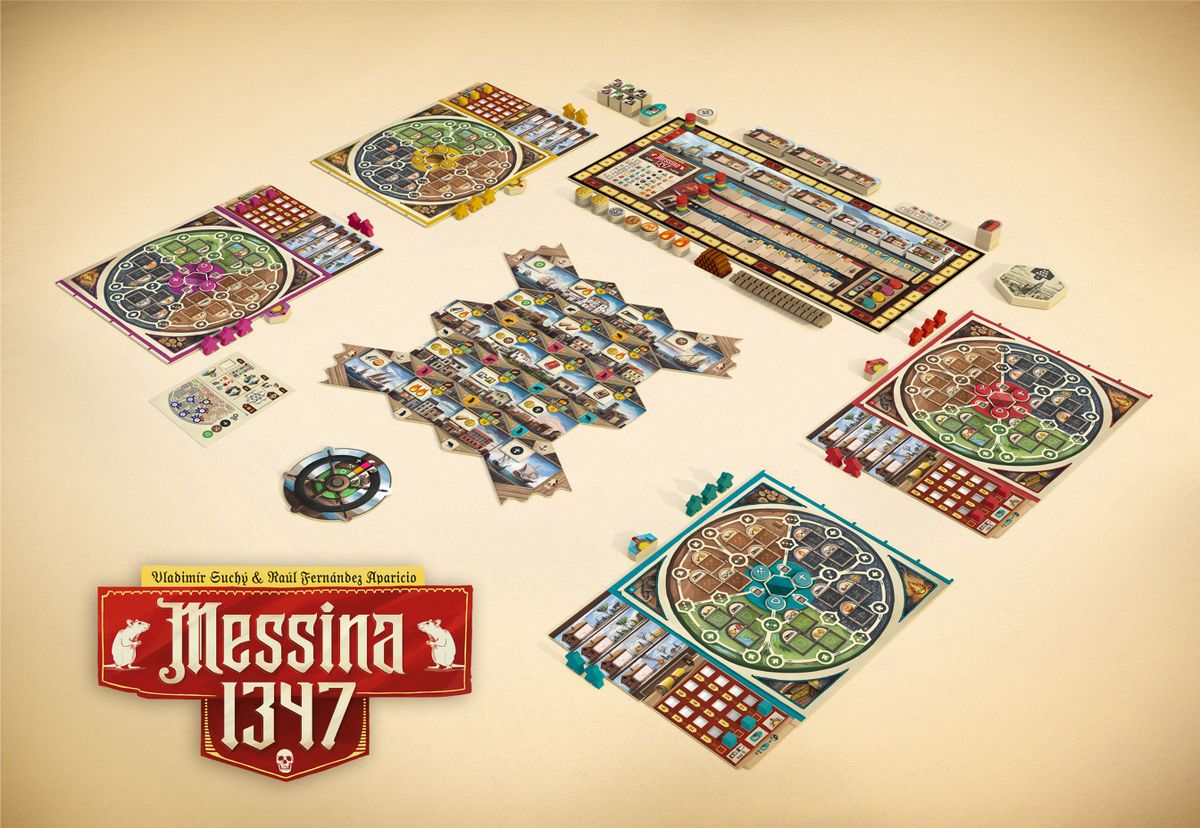
The final form of the game
Finally, the theme of the game can remind us that in the past, pandemics were more dangerous and less predictable or manageable than now. Vaccines didn't exist, and even when they were invented, they couldn't be developed or produced as quickly as they can now. I think we can all agree that as bad as the Covid pandemic has been, we should be grateful that we weren't around at the time of the ‟Black Plague" when it spread around Europe and Asia and killed a third of those that it infected.
That shouldn't take away from the fact that the current pandemic has undoubtedly led to the untimely deaths of a lot people as well as caused hardship of many kinds all round the world. Consequently we decided, following a suggestion from our fans and due to the special situation we are all in, to donate part of the profit from every copy of Messina 1347 sold to the international humanitarian organization "Médicins Sans Frontières".
P.S. Thanks to Mike Poole for the language corrections.

